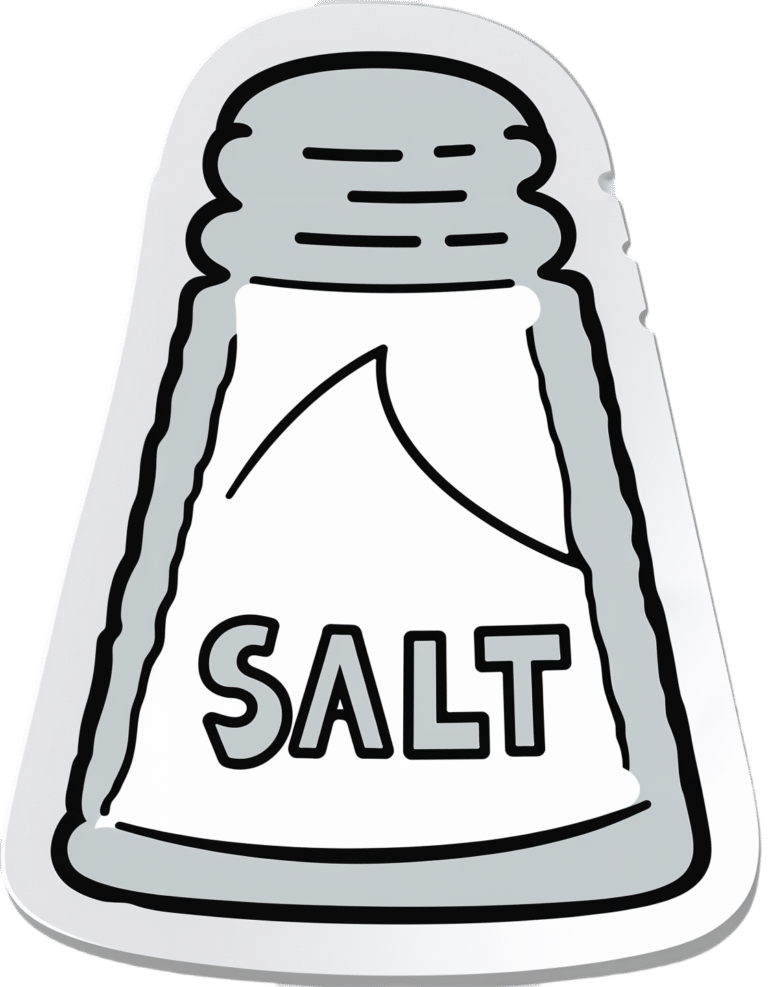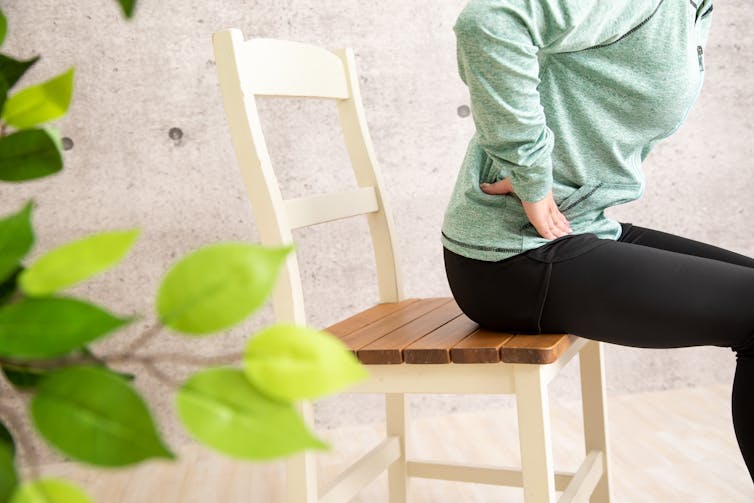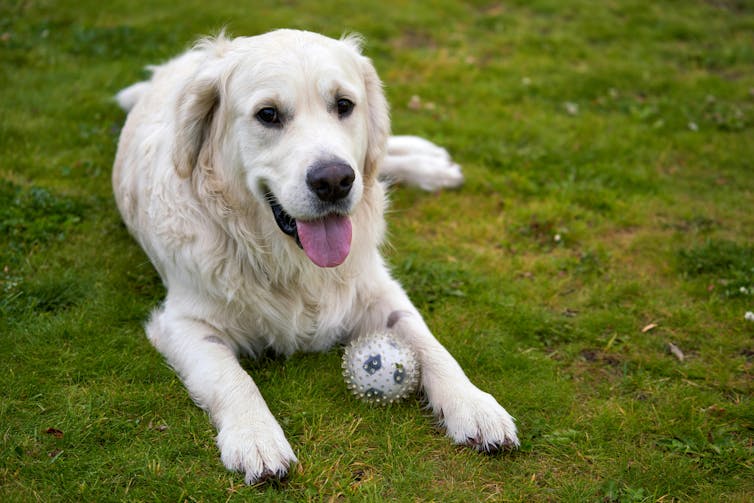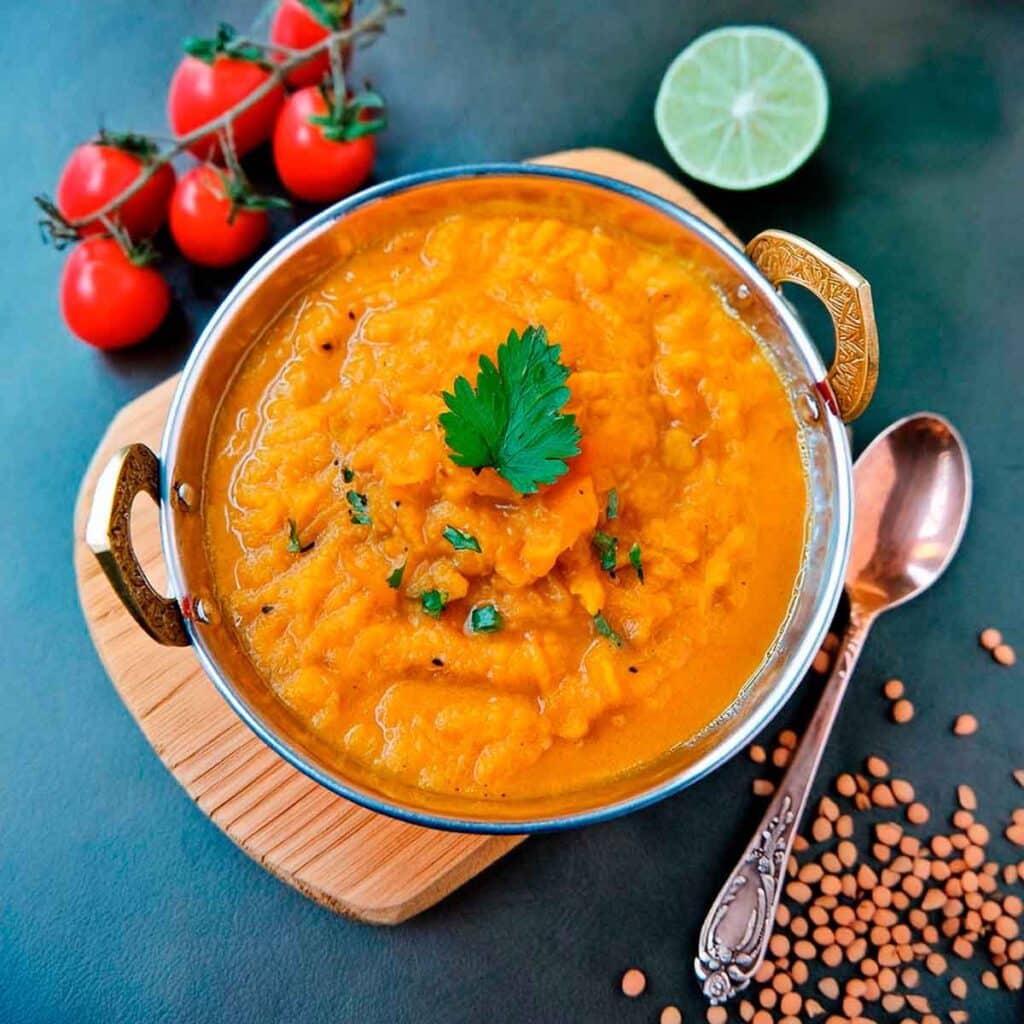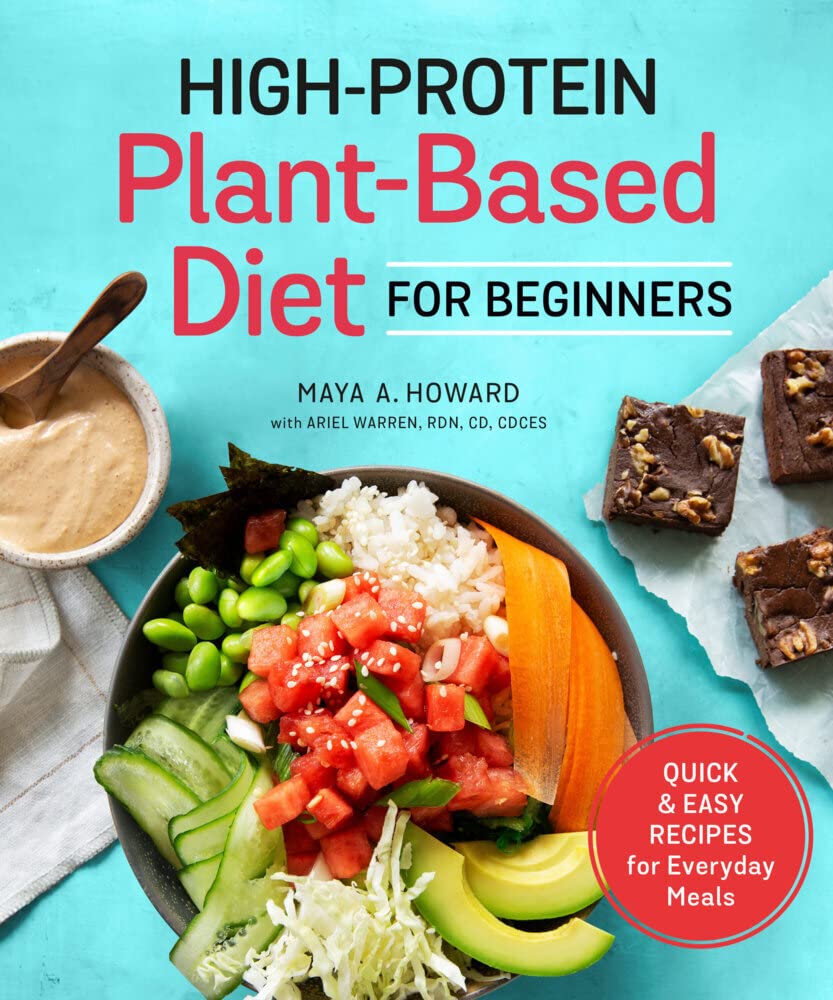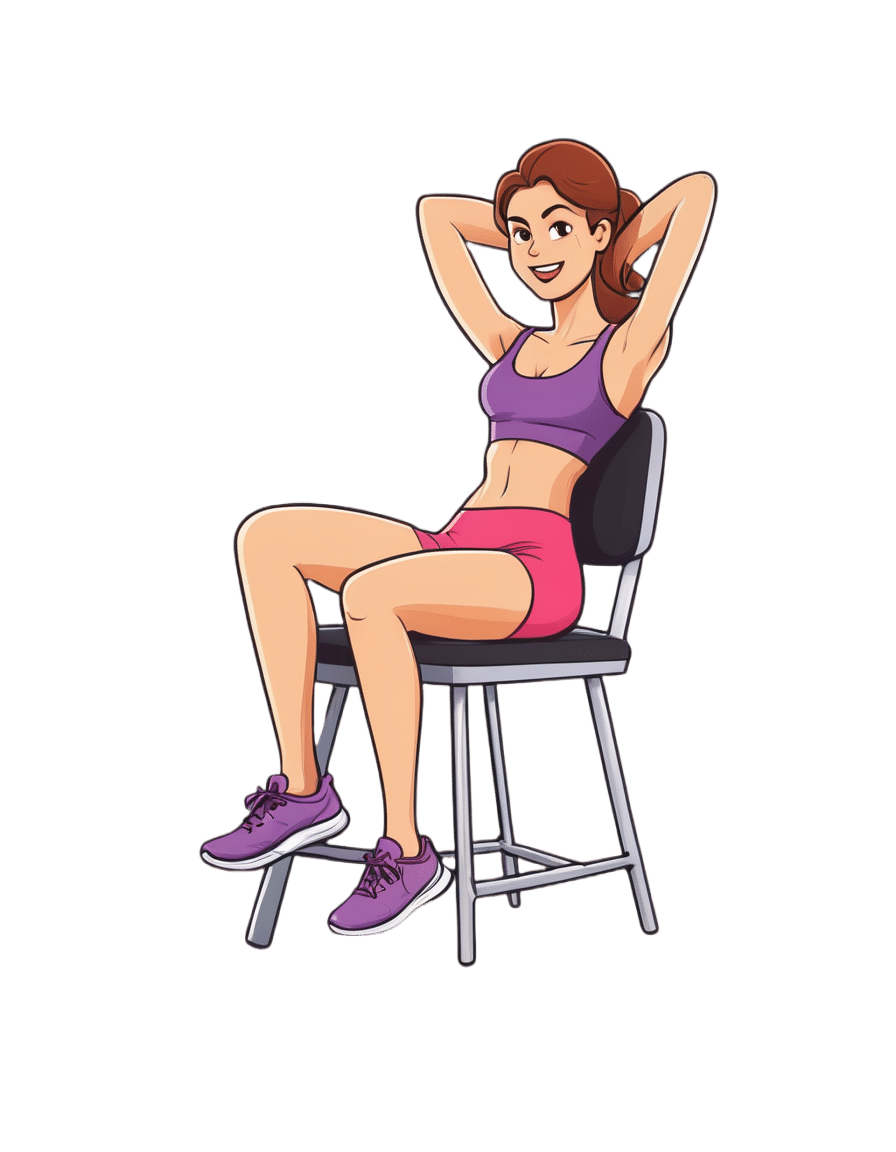
You can’t reverse the ageing process but these 5 things can help you live longer
10almonds is reader-supported. We may, at no cost to you, receive a portion of sales if you purchase a product through a link in this article.
At this time of year many of us resolve to prioritise our health. So it is no surprise there’s a roaring trade of products purporting to guarantee you live longer, be healthier and look more youthful.
While an estimated 25% of longevity is determined by our genes, the rest is determined by what we do, day to day.
There are no quick fixes or short cuts to living longer and healthier lives, but the science is clear on the key principles. Here are five things you can do to extend your lifespan and improve your health.
1. Eat a predominantly plant-based diet
What you eat has a huge impact on your health. The evidence overwhelmingly shows eating a diet high in plant-based foods is associated with health and longevity.
If you eat more plant-based foods and less meat, processed foods, sugar and salt, you reduce your risk of a range of illnesses that shorten our lives, including heart disease and cancer.
Plant-based foods are rich in nutrients, phytochemicals, antioxidants and fibre. They’re also anti-inflammatory. All of this protects against damage to our cells as we age, which helps prevent disease.
No particular diet is right for everyone but one of the most studied and healthiest is the Mediterranean diet. It’s based on the eating patterns of people who live in countries around the Mediterranean Sea and emphases vegetables, fruits, wholegrains, legumes, nuts and seeds, fish and seafood, and olive oil.
2. Aim for a healthy weight
Another important way you can be healthier is to try and achieve a healthy weight, as obesity increases the risk of a number of health problems that shorten our lives.
Obesity puts strain on all of our body systems and has a whole myriad of physiological effects including causing inflammation and hormonal disturbances. These increase your chances of a number of diseases, including heart disease, stroke, high blood pressure, diabetes and a number of cancers.
In addition to affecting us physically, obesity is also associated with poorer psychological health. It’s linked to depression, low self-esteem and stress.
One of the biggest challenges we face in the developed world is that we live in an environment that promotes obesity. The ubiquitous marketing and the easy availability of high-calorie foods our bodies are hard-wired to crave mean it’s easy to consume too many calories.
3. Exercise regularly
We all know that exercise is good for us – the most common resolution we make this time of year is to do more exercise and to get fitter. Regular exercise protects against chronic illness, lowers your stress and improves your mental health.
While one of the ways exercising helps you is by supporting you to control your weight and lowering your body fat levels, the effects are broader and include improving your glucose (blood sugar) use, lowering your blood pressure, reducing inflammation and improving blood flow and heart function.
While it’s easy to get caught up in all of the hype about different exercise strategies, the evidence suggests that any way you can include physical activity in your day has health benefits. You don’t have to run marathons or go to the gym for hours every day. Build movement into your day in any way that you can and do things that you enjoy.
4. Don’t smoke
If you want to be healthier and live longer then don’t smoke or vape.
Smoking cigarettes affects almost every organ in the body and is associated with both a shorter and lower quality of life. There is no safe level of smoking – every cigarette increases your chances of developing a range of cancers, heart disease and diabetes.
Even if you have been smoking for years, by giving up smoking at any age you can experience health benefits almost immediately, and you can reverse many of the harmful effects of smoking.
If you’re thinking of switching to vapes as a healthy long term option, think again. The long term health effects of vaping are not fully understood and they come with their own health risks.
5. Prioritise social connection
When we talk about living healthier and longer, we tend to focus on what we do to our physical bodies. But one of the most important discoveries over the past decade has been the recognition of the importance of spiritual and psychological health.
People who are lonely and socially isolated have a much higher risk of dying early and are more likely to suffer from heart disease, stroke, dementia as well as anxiety and depression.
Although we don’t fully understand the mechanisms, it’s likely due to both behavioural and biological factors. While people who are more socially connected are more likely to engage in healthy behaviours, there also seems to be a more direct physiological effect of loneliness on the body.
So if you want to be healthier and live longer, build and maintain your connections to others.
Hassan Vally, Associate Professor, Epidemiology, Deakin University
This article is republished from The Conversation under a Creative Commons license. Read the original article.

Don’t Forget…
Did you arrive here from our newsletter? Don’t forget to return to the email to continue learning!
Recommended
Learn to Age Gracefully
Join the 98k+ American women taking control of their health & aging with our 100% free (and fun!) daily emails:
-
Only walking for exercise? Here’s how to get the most out of it
10almonds is reader-supported. We may, at no cost to you, receive a portion of sales if you purchase a product through a link in this article.
We’re living longer than in previous generations, with one in eight elderly Australians now aged over 85. But the current gap between life expectancy (“lifespan”) and health-adjusted life expectancy (“healthspan”) is about ten years. This means many of us live with significant health problems in our later years.
To increase our healthspan, we need planned, structured and regular physical activity (or exercise). The World Health Organization recommends 150–300 minutes of moderate-intensity exercise – such as brisk walking, cycling and swimming – per week and muscle strengthening twice a week.
Yet few of us meet these recommendations. Only 10% meet the strength-training recommendations. Lack of time is one of the most common reasons.
Walking is cost-effective, doesn’t require any special equipment or training, and can be done with small pockets of time. Our preliminary research, published this week, shows there are ways to incorporate strength-training components into walking to improve your muscle strength and balance.
Why walking isn’t usually enough
Regular walking does not appear to work as muscle-strengthening exercise.
In contrast, exercises consisting of “eccentric” or muscle-lengthening contractions improve muscle strength, prevent muscle wasting and improve other functions such as balance and flexibility.
Typical eccentric contractions are seen, for example, when we sit on a chair slowly. The front thigh muscles lengthen with force generation.
When you sit down slowly on a chair, the front thigh muscles lengthen.
buritora/ShutterstockOur research
Our previous research found body-weight-based eccentric exercise training, such as sitting down on a chair slowly, improved lower limb muscle strength and balance in healthy older adults.
We also showed walking down stairs, with the front thigh muscles undergoing eccentric contractions, increased leg muscle strength and balance in older women more than walking up stairs. When climbing stairs, the front thigh muscles undergo “concentric” contractions, with the muscles shortening.
It can be difficult to find stairs or slopes suitable for eccentric exercises. But if they could be incorporated into daily walking, lower limb muscle strength and balance function could be improved.
This is where the idea of “eccentric walking” comes into play. This means inserting lunges in conventional walking, in addition to downstairs and downhill walking.
In our new research, published in the European Journal of Applied Physiology, we investigated the effects of eccentric walking on lower limb muscle strength and balance in 11 regular walkers aged 54 to 88 years.
The intervention period was 12 weeks. It consisted of four weeks of normal walking followed by eight weeks of eccentric walking.
The number of eccentric steps in the eccentric walking period gradually increased over eight weeks from 100 to 1,000 steps (including lunges, downhill and downstairs steps). Participants took a total of 3,900 eccentric steps over the eight-week eccentric walking period while the total number of steps was the same as the previous four weeks.
We measured the thickness of the participants’ front thigh muscles, muscle strength in their knee, their balance and endurance, including how many times they could go from a sitting position to standing in 30 seconds without using their arms. We took these measurements before the study started, at four weeks, after the conventional walking period, and at four and eight weeks into the eccentric walking period.
We also tested their cognitive function using a digit symbol-substitution test at the same time points of other tests. And we asked participants to complete a questionnaire relating to their activities of daily living, such as dressing and moving around at home.
Finally, we tested participants’ blood sugar, cholesterol levels and complement component 1q (C1q) concentrations, a potential marker of sarcopenia (muscle wasting with ageing).
Regular walking won’t contract your muscles in the same way as eccentric walking.
alexei_tm/ShutterstockWhat did we find?
We found no significant changes in any of the outcomes in the first four weeks when participants walked conventionally.
From week four to 12, we found significant improvements in muscle strength (19%), chair-stand ability (24%), balance (45%) and a cognitive function test (21%).
Serum C1q concentration decreased by 10% after the eccentric walking intervention, indicating participants’ muscles were effectively stimulated.
The sample size of the study was small, so we need larger and more comprehensive studies to verify our findings and investigate whether eccentric walking is effective for sedentary people, older people, how the different types of eccentric exercise compare and the potential cognitive and mental health benefits.
But, in the meantime, “eccentric walking” appears to be a beneficial exercise that will extend your healthspan. It may look a bit eccentric if we insert lunges while walking on the street, but the more people do it and benefit from it, the less eccentric it will become.
Ken Nosaka, Professor of Exercise and Sports Science, Edith Cowan University
This article is republished from The Conversation under a Creative Commons license. Read the original article.
Share This Post
-
Is owning a dog good for your health?
10almonds is reader-supported. We may, at no cost to you, receive a portion of sales if you purchase a product through a link in this article.
Australia loves dogs. We have one of the highest rates of pet ownership in the world, and one in two households has at least one dog.
But are they good for our health?
Mental health is the second-most common reason cited for getting a dog, after companionship. And many of us say we “feel healthier” for having a dog – and let them sleep in our bedroom.
Here’s what it means for our physical and mental health to share our homes (and doonas) with our canine companions.
Pogodina Natalia/Shutterstock Are there physical health benefits to having a dog?
Having a dog is linked to lower risk of death over the long term. In 2019, a systematic review gathered evidence published over 70 years, involving nearly four million individual medical cases. It found people who owned a dog had a 24% lower risk of dying from any cause compared to those who did not own a dog.
Having a dog may help lower your blood pressure through more physical activity. Barnabas Davoti/Pexels Dog ownership was linked to increased physical activity. This lowered blood pressure and helped reduce the risk of stroke and heart disease.
The review found for those with previous heart-related medical issues (such as heart attack), living with a dog reduced their subsequent risk of dying by 35%, compared to people with the same history but no dog.
Another recent UK study found adult dog owners were almost four times as likely to meet daily physical activity targets as non-owners. Children in households with a dog were also more active and engaged in more unstructured play, compared to children whose family didn’t have a dog.
Exposure to dirt and microbes carried in from outdoors may also strengthen immune systems and lead to less use of antibiotics in young children who grow up with dogs.
Children in households with a dog were often more active. Maryshot/Shutterstock Health risks
However, dogs can also pose risks to our physical health. One of the most common health issues for pet owners is allergies.
Dogs’ saliva, urine and dander (the skin cells they shed) can trigger allergic reactions resulting in a range of symptoms, from itchy eyes and runny nose to breathing difficulties.
A recent meta-analysis pooled data from nearly two million children. Findings suggested early exposure to dogs may increase the risk of developing asthma (although not quite as much as having a cat does). The child’s age, how much contact they have with the dog and their individual risk all play a part.
Slips, trips and falls are another risk – more people fall over due to dogs than cats.
Having a dog can also expose you to bites and scratches which may become infected and pose a risk for those with compromised immune systems. And they can introduce zoonotic diseases into your home, including ring worm and Campylobacter, a disease that causes diarrhoea.
For those sharing the bed there is an elevated the risk of allergies and picking up ringworm. It may result in lost sleep, as dogs move around at night.
On the other hand some owners report feeling more secure while co-sleeping with their dogs, with the emotional benefit outweighing the possibility of sleep disturbance or waking up with flea bites.
Proper veterinary care and hygiene practices are essential to minimise these risks.
Many of us don’t just share a home with a dog – we let them sleep in our beds. Claudia Mañas/Unsplash What about mental health?
Many people know the benefits of having a dog are not only physical.
As companions, dogs can provide significant emotional support helping to alleviate symptoms of anxiety, depression and post-traumatic stress. Their presence may offer comfort and a sense of purpose to individuals facing mental health challenges.
Loneliness is a significant and growing public health issue in Australia.
In the dog park and your neighbourhood, dogs can make it easier to strike up conversations with strangers and make new friends. These social interactions can help build a sense of community belonging and reduce feelings of social isolation.
For older adults, dog walking can be a valuable loneliness intervention that encourages social interaction with neighbours, while also combating declining physical activity.
However, if you’re experiencing chronic loneliness, it may be hard to engage with other people during walks. An Australian study found simply getting a dog was linked to decreased loneliness. People reported an improved mood – possibly due to the benefits of strengthening bonds with their dog.
Walking a dog can make it easier to talk to people in your neighbourhood. KPegg/Shutterstock What are the drawbacks?
While dogs can bring immense joy and numerous health benefits, there are also downsides and challenges. The responsibility of caring for a dog, especially one with behavioural issues or health problems, can be overwhelming and create financial stress.
Dogs have shorter lifespans than humans, and the loss of a beloved companion can lead to depression or exacerbate existing mental health conditions.
Lifestyle compatibility and housing conditions also play a significant role in whether having a dog is a good fit.
The so-called pet effect suggests that pets, often dogs, improve human physical and mental health in all situations and for all people. The reality is more nuanced. For some, having a pet may be more stressful than beneficial.
Importantly, the animals that share our homes are not just “tools” for human health. Owners and dogs can mutually benefit when the welfare and wellbeing of both are maintained.
Tania Signal, Professor of Psychology, School of Health, Medical and Applied Sciences, CQUniversity Australia
This article is republished from The Conversation under a Creative Commons license. Read the original article.
Share This Post
-
Give Your Adrenal Glands A Chance
10almonds is reader-supported. We may, at no cost to you, receive a portion of sales if you purchase a product through a link in this article.
The Hats Of Wrath
Your adrenal glands are two little hat-shaped glands that sit on top of your kidneys (like your kidneys are wearing them as hats, in fact).
They produce adrenaline, as you might have guessed, and also cortisol and aldosterone, which you might or might not have known, as well as some miscellaneous corticosteroids that are beyond the scope of today’s article.
Fun fact! For a long time, doctors thought adrenal glands were much larger than they usually are, because of learning anatomy from corpses that were dissected, but invariably the corpses were those of poor people, especially criminals, whose adrenal glands were almost always overworked and swollen.
You don’t want yours to be like that.
What goes wrong
Assuming you don’t have a rare disorder like Addison’s disease (in which the adrenal glands don’t produce enough of the hormones they’re supposed to), your adrenal glands will usually not have trouble producing enough adrenaline et al.
However, as we learned from the Victorian vagabonds, they can also have no problems producing too much—much like any organ that gets overworked, however, this has consequences.
Hopefully you’re not living a life of stressful crime on the streets, but maybe you have other reasons your adrenal glands are working overtime, such as any source of chronic stress, bad sleep (can’t recharge without this downtime), overuse of stimulants (including caffeine and/or nicotine), and, counterintuitively, alcohol. All these things can tax the adrenal glands considerably.
When this happens, in the extreme we can get Cushing’s syndrome, characterized by the symptoms: hypertension, cortisol-based fat distribution i.e. especially face and abdomen, weakness, fragile easily irritable skin, hair loss and/or hirsutism, paradoxically, and of course general fatigue.
In the non-extreme, we get all the same symptoms just to a lower level, and experience what the medical profession is begging us not to call “Adrenal Fatigue Syndrome” because that’s not an official diagnosis, whereas if it gets a name then they’ll be expected to treat it.
What keeps things going right
Obviously, the opposite of the above, for a start. Which means:
Manage chronic stress; see: How To Manage Chronic Stress
Get good sleep; see: Why You Probably Need More Sleep
Go easy on the caffeine; see: Caffeine Mythbusting
Skip the nicotine; see: Nicotine Benefits (That We Don’t Recommend)!
Avoid alcohol; see: How To Reduce Or Quit Alcohol
There are specific vitamins and minerals that support adrenal health too; they are: vitamins B5, B6, B12, C, & D, and also magnesium and zinc.
Good dietary sources of the above include green leafy things, cruciferous vegetables*, nuts and seeds, avocados, olive oil, and if you eat fish, then also fatty fish.
In contrast, it is good to cut down (or avoid entirely) red meat and unfermented dairy.
*Unsure how to get cruciferous vegetables in more often? Try today’s featured recipe, superfood broccoli pesto
Want to know more?
A large part of adrenal health is about keeping cortisol levels down generally (except: for most of us, we can have a little hormesis, as a treat), so for the rest of that you might like to read:
Lower Your Cortisol! (Here’s Why & How)
Take care!
Share This Post
Related Posts
-
Delicious Daily Daal
10almonds is reader-supported. We may, at no cost to you, receive a portion of sales if you purchase a product through a link in this article.
You’re not obliged to eat this every day, but you might want to. The reason we called this one this, is because it’s a super simple recipe (don’t be put off by the long ingredients list; it’s mostly spices making it look long) which, after you’ve done it a couple of times, you could practically do it in your sleep quickly and easily.
The name “lentil daal” is a bit like “naan bread”—a redundant tautology repeated more than once unnecessarily, but it helps for international clarity. The dish is usually served with naan, by the way, and rice. We don’t have room for those today, maybe we’ll do them another day; for now, you can just cook rice how you normally do, and buy naan if necessary.
Writer’s note: I love strong flavors; many people don’t. For this reason I’m going to give a “basic” version. Please feel free to multiply the spices if you feel so inclined. Where I give “one teaspoon” of a spice below, I’d use a tablespoon at home. Chili peppers can vary in heat a lot even within the same type, so what I do for any given batch is taste one (raw), judge the heat, and use an appropriate number of peppers accordingly. If you don’t want to do that, I suggest just guessing low (as per the instructions below) and if you find at the end you want more heat, you can always stir in a little hot sauce. I know that sounds heretical, but at the end of the day, the primary goal of cooking is to have the meal you want at the end of it.
You will need
- 1 1/2 cups red lentils
- 1 large onion, chopped
- 1 large bulb garlic, minced
- 1 oz ginger, grated
- 2 hot peppers (e.g. serrano), chopped
- 1 tsp ground cumin
- 1 tsp ground coriander
- 1 tsp ground turmeric
- 1 tsp garam masala (this is also ground, but it doesn’t come any other way)
- 1 tsp chili flakes (omit if you’re not a fan of heat)
- 2 tsp cracked black pepper
- 1 tsp salt ← I wouldn’t recommend multiplying this one unless later, to taste. In fact, instead of 1 tsp salt I use 2 tsp MSG, which has less sodium than 1 tsp salt. But “1 tsp salt” is the “easy to find in the store” version.
- 2 large or 3 small tomatoes, chopped (or 1 can chopped tomatoes)
- 2 shallots, thinly sliced
- 1 tsp cumin seeds
- 1 tsp mustard seeds
- 1 tsp coriander seeds
- 1 tsp black peppercorns
- 1 lime
- 1/2 cup fresh cilantro, or if you have the “that tastes like soap” gene, parsley, chopped
- Coconut oil for cooking (if you don’t like coconut, consider springing for avocado oil—if you use olive oil, it’ll add an olivey taste which changes the dish a lot; not inherently bad, but it feels a lot less like traditional daal; seed oils are less healthy and we don’t recommend them; ghee is a traditional option and not bad in moderation, but not as healthy as the oils we mentioned first)
- Water for cooking the lentils
Method
(we suggest you read everything at least once before doing anything)
1) In a saucepan, boil water and add the lentils; let them simmer while doing the next things.
2) Sauté the onions until translucent. This should only take a few minutes.
3) Add the garlic, ginger, and hot peppers, and keep stirring for another couple of minutes.
4) Add the ground spices (cumin, coriander, turmeric, garam masala) chili flakes, and cracked black pepper, as well as the salt or MSG if using (not both), and stir them in quickly but thoroughly.
For the next step, you may need to transfer to larger pan if your sauté pan isn’t big enough to take the volume; if so, that’s fine, the sauté has done its job and can have a rest now. If your sauté pan is big enough, just carry on in the same pan; this is perfect.
5) Add the lentils with the water you cooked them in (there might not be much water left now, as the lentils will have absorbed a lot of it; this is fine) as well as the chopped tomatoes.
6) Simmer until it has the consistency of a very thick sauce (you can add a splash more water here and there if it seems to need more). In the West it’s common to serve lentils “al dente”, but in the East it’s usual to (for dishes like this) cook them until they start to
7) Add the juice of at least 1/2 of your lime, or the whole lime if you feel so inclined.
8) In a pre-heated skillet, flash-fry the sliced shallots and the seeds (cumin, coriander, mustard, black peppercorns) at the hottest temperature you can muster. Don’t worry if the oil smokes; we’re only going to be at this tadka-making stage for a moment and nothing will stick provided you keep it moving. When the seeds start popping, it’s ready. Add it all to the big pan and stir in.
9) Add the cilantro-or-parsley garnish once you’re ready to serve.
Enjoy!
Learn more
For those interested in some of the science of what we have going on today:
- Why You’re Probably Not Getting Enough Fiber (And How To Fix It)
- How Much Spice Is Right?
- Tasty Polyphenols
Take care!
Don’t Forget…
Did you arrive here from our newsletter? Don’t forget to return to the email to continue learning!
Learn to Age Gracefully
Join the 98k+ American women taking control of their health & aging with our 100% free (and fun!) daily emails:
-
High-Protein Plant-Based Diet for Beginners – by Maya Howard with Ariel Warren
10almonds is reader-supported. We may, at no cost to you, receive a portion of sales if you purchase a product through a link in this article.
Seasoned vegans (well-seasoned vegans?) will know that getting enough protein from a plant-based diet is really not the challenge that many think it is, but for those just embarking on cutting out the meat, it’s not useful to say “it’s easy!”; it’s useful to show how.
That’s what this book does. And not just by saying “these foods” and leaving people to wonder if they need to eat a pound of tofu each day to get their protein in. Instead, recipes. Enough for a 4-week meal plan, and the idea is that after a month of eating that way, it won’t be nearly so mysterious.
The recipes are very easy to execute, while still having plenty of flavor (which is what happens when one uses a lot of flavorsome main ingredients and then seasons them well too). The ingredients are not obscure, and you should be able to find everything easily in any medium-sized supermarket.
As for the well-roundedness of the diet, we’ll mention that the “with Ariel Warren” in the by-line means that while the book was principally authored by Maya Howard (who is, at time of writing, a nutritionist-in-training), she had input throughout from Ariel Warren (a Registered Dietician Nutritionist) to ensure she didn’t go off-piste anyway and it gets the professional stamp of approval.
Bottom line: if you’d like to cook plant based while still prioritizing protein and you’re not sure how to make that exciting and fun instead of a chore, then this book will show you how to please your taste buds and improve your body composition at the same time.
Click here to check out High-Protein Plant-Based Diet for Beginners, and dig in!
Don’t Forget…
Did you arrive here from our newsletter? Don’t forget to return to the email to continue learning!
Learn to Age Gracefully
Join the 98k+ American women taking control of their health & aging with our 100% free (and fun!) daily emails:
-
Chair Stretch Workout Guide
10almonds is reader-supported. We may, at no cost to you, receive a portion of sales if you purchase a product through a link in this article.
It’s Q&A Day at 10almonds!
Have a question or a request? You can always hit “reply” to any of our emails, or use the feedback widget at the bottom!
In cases where we’ve already covered something, we might link to what we wrote before, but will always be happy to revisit any of our topics again in the future too—there’s always more to say!
As ever: if the question/request can be answered briefly, we’ll do it here in our Q&A Thursday edition. If not, we’ll make a main feature of it shortly afterwards!
So, no question/request too big or small
❝The 3 most important exercises don’t work if you can’t get on the floor. I’m 78, and have knee replacements. What about 3 best chair yoga stretches? Love your articles!❞
Here are six!
Don’t Forget…
Did you arrive here from our newsletter? Don’t forget to return to the email to continue learning!
Learn to Age Gracefully
Join the 98k+ American women taking control of their health & aging with our 100% free (and fun!) daily emails:

